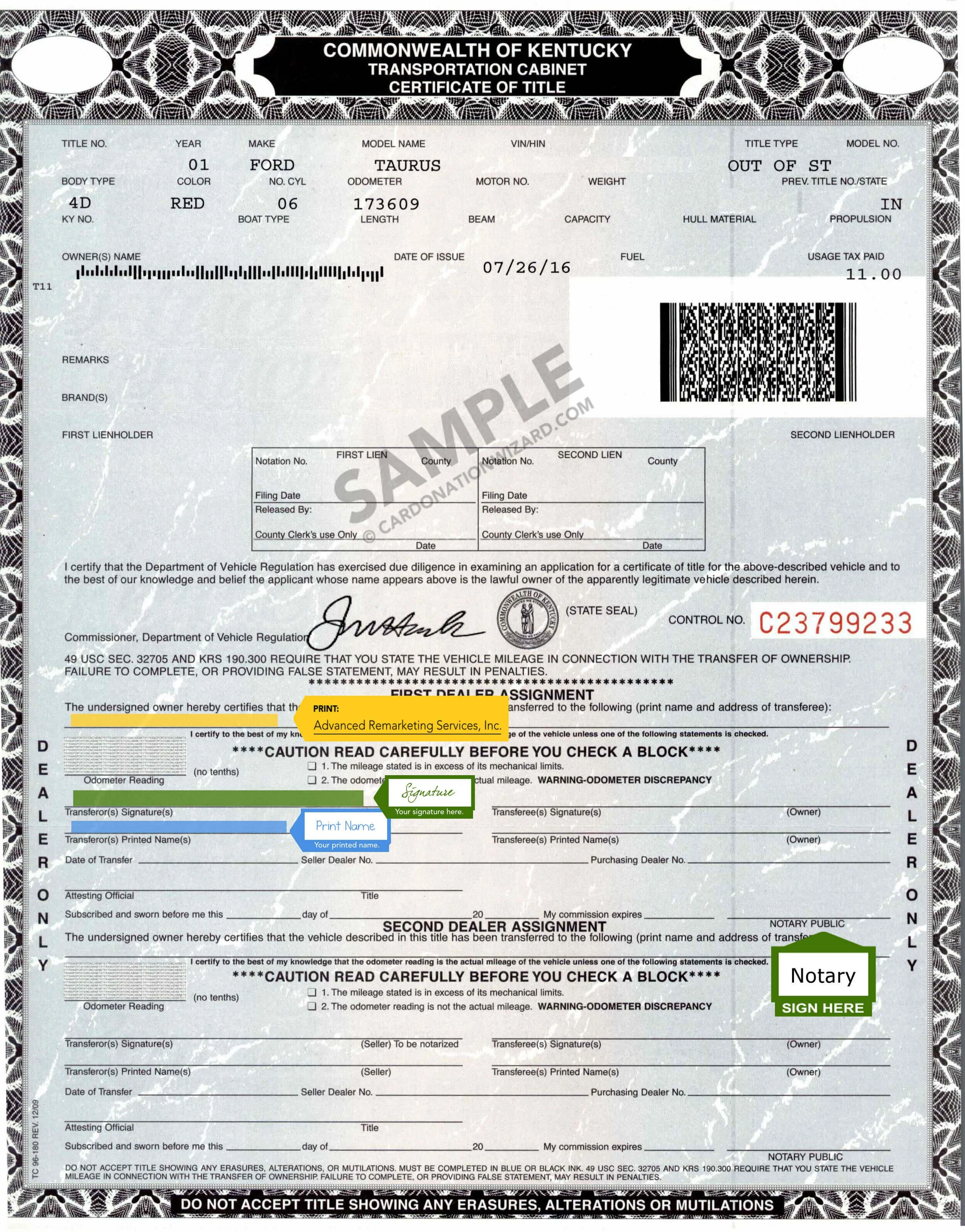An automotive bill of sale is the written equivalent of a handshake agreement. You might think that a bill of sale will protect you from trouble when buying a car. Unfortunately, that’s not always true.
While you should obtain a bill of sale every time you buy or sell a car, this infamous document probably doesn’t have as much legal power as you might think.
In short: Always get a title whenever possible. A bill of sale can come in handy, but don’t rely on it to guarantee ownership.
What Does a Written Bill of Sale Mean?
A car title is a document used by the DMV to assign legal ownership of a vehicle. It indicates liens and salvage status, but it does not define the conditions of the sale.
A bill of sale is a legal document completed by the buyer and seller of a car. Its purpose is to protect both parties by acting as a receipt for the transaction and providing additional details when needed.
An automotive bill of sale should contain information about the vehicle, the buyer and seller, and the date and location of the sale. It should also define the sale’s conditions (as is, warranty yes/no, and so forth). A bill of sale can also be used to stipulate future events, such as requiring the seller to change or fix certain things about the car before the sale is finalized.
2 Ways People Use a Bill of Sale Incorrectly
By itself, an automotive bill of sale does not convey legal ownership of a car unless other factors are in place. That doesn’t stop people from using them incorrectly.
Planning a future sale date
People will often use an automotive bill of sale to “lock in” a sale date ahead of time. For example, Jim drafts a bill of sale saying that Bob will sell a car to him on Friday. Maybe Jim needs to get the money together or perhaps Bob needs to use the car until that day.
That sort of agreement holds a minimal amount of legal value. If Bob sold the car to someone else, the bill of sale may not suffice if Jim were to argue rightful ownership of the car.
Buying a car without a title
It’s sometimes legal to buy a car without a title. With that said, people will often rely on a bill of sale to prove rightful ownership. For example, Pam sells Jim an abandoned vehicle from her property. She writes a bill of sale detailing how she came to own the car, the make and model of the car, and the fact that Jim has paid her for it. But that written note won’t actually suffice to prove that Jim is the legal owner of the car if the titled owner comes forward.
That’s not to say an automotive bill of sale has no value when buying or selling a car – when it’s used correctly.
How to Write a Bill of Sale for Your Car
Drafting a well-executed bill of sale is simple. Using an ink pen and a sheet of paper:
List the sale date, time, and location
List the vehicle’s full VIN number
Describe the vehicle’s condition
Report any agreed-upon details (as is, warranty yes/no, delivery, etc)
Leave space for both parties to sign and date the document. List addresses and phone numbers for both parties as well as a driver’s license number if you wish. Finally, take a picture of the seller’s photo ID and the car at the time and location of the sale.
Using Official Bill of Sale Templates
A premade bill of sale template should be available on your state’s DMV website. This is an easier solution than drafting your own document, though its legal power will often be no greater than a handwritten document. You can also use our custom fillable bill of sale template HERE.
You Still Need a Title
If the title is missing, stolen, or lost, more research should be done before you agree to buy the car. Obtain a VIN Check to learn the truth and compare that to what the seller knows.
Unfortunately, people are capable of anything. If something about a car-buying situation doesn’t feel right, if something about the seller seems off, or if you hear that voice telling you “no,” walk away. There will always be another opportunity to find the car you’re looking for.
The team at Dirt Legal can obtain a title for almost any type of vehicle. We’re happy to help you write a bill of sale or feel out a car buying situation. Please don’t hesitate to contact us with any questions or concerns about car titles, VINs, or anything related to the titling process.
We are not attorneys. This article is not legal advice.














Selling a vehicle that's registered in a Montana LLC may seem complex, but it's actually a straightforward process. Whether you plan to sell the vehicle on its own or include the LLC in the transaction, there are several advantages to consider. From avoiding sales tax to making the transition easier for the buyer, a Montana LLC can streamline the sale. This article walks you through the steps, legal considerations, and best practices for successfully selling your vehicle, while also helping you decide whether to keep or transfer your LLC.